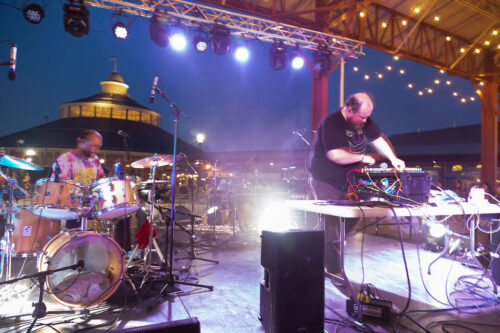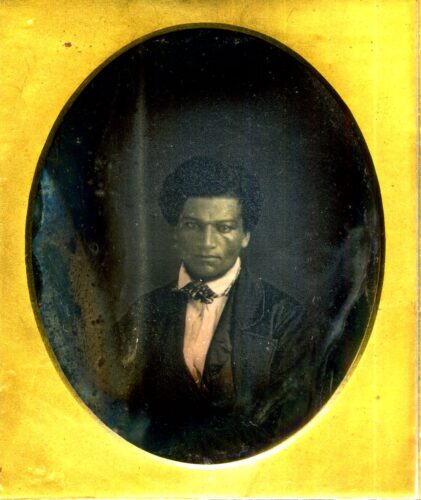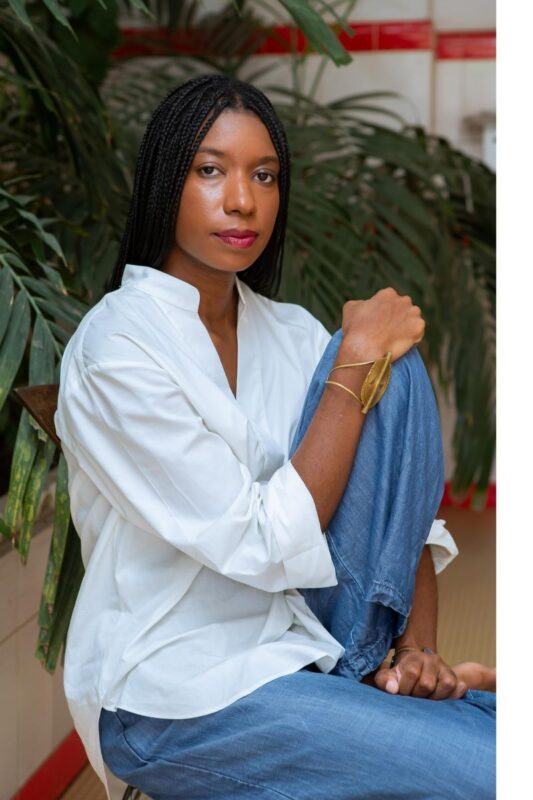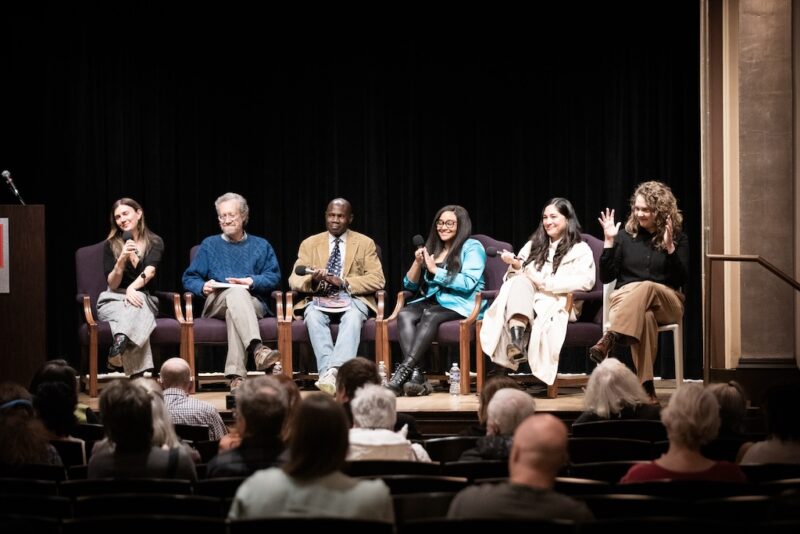I learned a lot on the internet this week! Highlights: A potter named David Drake, ICWA, the Iowa Supreme Court, Philip Lewis, Black Women Writers, Kiese Laymon on the Second Person, Myrlie Evers, Juneteenth, the war inside psychoanalysis, and the first social media babies are all grown up–and they’re not happy.
I first heard about David Drake, an enslaved potter, while listening to Theaster Gates’s 2014 NCECA talk ‘Yamaguchi Soul Manufacturing Corporation and a Potter Named Dave.’ Born around 1801, Drake is known for his poem jars inscribed with text, “an extraordinary act of defiance in pre-Civil War South Carolina,” in which he “indelibly assert[ed] his existence in an age that sought to obliterate the humanity of Black people.”
From what we know, “Drake appears to have lived most of his life in the Old Edgefield district, an area that borders Georgia and is known for its rich clays and industrial-scale potteries that ran on slave labor.” His jars were meant to store foods, and are now highly sought after by museums and collectors—often selling for six figures. Until recently, Drake wasn’t known to have any living relatives, but in 2016 April Haynes, “an independent genealogist and researcher who’s been tracking down descendants of enslaved people from the area,” traced his lineage to Daisy Whitner and her siblings.
Learning about their ancestors “has plunged the four siblings, along with their own numerous descendants, headlong into a disorienting world. There’s the sharp-elbowed debate over Drake’s life, legacy, and relationship with his enslavers. There’s the thorny question of how museums, which have long ignored the contributions of Black and enslaved people, should treat ‘artworks’ created by coerced labor — a question only sharpened by the pots’ vaulting auction values. Then there’s the family’s own curiosity and the ineffable emotion that comes with the discovery of an enslaved ancestor.”
ReWire News Group: Tribal Sovereignty Triumphs in Latest SCOTUS Decision
On Thursday, the Supreme Court announced its decision on Brackeen v. Haaland, which challenged the Indian Child Welfare Act. The 7-2 decision upheld the ICWA, “which ensures that Indigenous children stay in their families and tribes,” and supports tribal sovereignty. Imani Gandy and Jessica Mason Pieklo react and analyze this surprings—but welcomed—decision in this episode of Boom! Lawyered.
Iowa Public Radio: Deadlocked Iowa Supreme Court will not reinstate 6-week abortion ban
The Iowa Supreme Court deadlocked 3-3 and will not reinstate a restrictive 6-week abortion ban. Abortion remains legal up to 20 weeks of pregnancy. The ban was originally signed into law in 2018 by Republican Governor Kim Renyolds, but was “blocked by the Polk County District Court and never took effect, with a judge ruling in 2019 that the law was unconstitutional based on state and federal abortion rights protections.”
Renyolds decided to appeal the decision “last June, the Iowa Supreme Court ruled there is no fundamental right to abortion subject to strict scrutiny, undermining the state’s strong abortion rights protections. Then, the U.S. Supreme Court overturned Roe v. Wade, ending federal protection for abortion rights.”
Complex: Going Viral: How Philip Lewis Turned His Twitter Popularity Into a Journalism Career
I follow Philip Lewis on Twitter and subscribe to his newsletter—both of which help me write this column every week! An editor at HuffPost, Lewis is largely known across the internet for being a trusted voice in journalism, breaking stories to his hundreds of thousands of followers. Much of his practice centers cultivating media literacy. All of his tweets have the potential to go viral, and he sees “[his] job in particular as a Black journalist [is] to cut through a lot of that noise and just show you what’s going on. Obviously, I can’t get to everything, but I try to…The whole point of it is not to be perfect. The point is just to continue to build that credibility and that’s just something that comes over time.”
The Nation: How Black Women Writers Got It Done
After decades of being out of print, Haymarket Books has reissued Claudia Tate’s Black Women Writers at Work, a timeless, “genre-defying compilation of interviews with some of the foremost Black women writers of the 20th century, including Maya Angelou, Audre Lorde, Toni Morrison, and Alice Walker.” Although most people included in the collection have passed, “Black Women Writers at Work returns to give us permission to write, in part by reminding us that the work of Black women writers is not finished.”
Guernica: You Are The Second Person
Kiese Laymon’s work always seems to find me when I need it most. Published almost a decade ago to the day, Laymon laments on what it means to be a “real black writer,” writing his “way out of death and destruction,” love and care and what it means to be responsible to others and yourself. Laymon’s eye inwards is always as sharp as his external gaze. He is devastatingly honest writing a truth that we have all experienced: “You’ve eviscerated people who loved you when they made you the second person in their lives, when they put the relationship’s needs ahead of your wants. And you’ve been eviscerated for the same thing.”
Sixty years after Civil Rights leader Medger Evers’s murder, his widow Myrlie Evers opens up to Gayle King about his life and the “hatred kept her going after his death.” Evers and King spoke in the family’s former home in Jackson, Mississippi, where he was gunned down in front of his wife and children. When asked about what it was like to be in the house, Evers “sees love in this house that overrides the fear.”
Texas Monthly: The Story We’ve Been Told About Juneteenth Is Wrong
Juneteenth is tomorrow! Since 2020, the holiday has catapulted in popularity, becoming a national holiday in 2021. But even as its popularity increases “the real history of Juneteenth remains largely unknown—the myriad ways in which Black freedom was persistently sabotaged, beginning with [Union general Gordon] Granger’s original order and continuing through today—at a moment when our national narrative is hotly contested. The teaching of history is under attack, which lends more urgency to an earnest reckoning with the meaning of Juneteenth.”
Now, as more and more people observe the day, it is necessary to ask, “What are we celebrating when we observe it, and should we be celebrating it at all? Is it actually an indictment of America? A repudiation of the Fourth of July? Is it a day worthy of veneration, of shame, or of both?” Peniel Joseph delves into these questions, Juneteenth’s relationship to Haitian independence and more in this excellent piece.
The Guardian: Inside the war tearing psychoanalysis apart: ‘The most hatred I’ve ever witnessed’
There is a war waging in psychoanalysis. Lara Sheehi, a professor at George Washington University, was accused of antisemitism after an “extracurricular event she had organized, where a Palestinian law professor had sharply chastised Israel” upset jewish students. The conversation about the event in a following “seminar has torn the insular world of psychoanalysis into bitter factions; sparked legal petitions, counter-petitions, investigations, ethics complaints, disinvitations, resignations, death threats and accusations of libel; and led the president of the United States’ preeminent psychoanalytic association to step down, in April, in what he calls a ‘human sacrifice.’”
The conflict has brought about a fundamental debate in the field that has been brewing for years: “Are psychoanalysts neutral interlocutors, healing one mind at a time, or activists, diagnosing society’s pathologies and fighting injustice? Can someone be a nuanced and empathetic clinician, and also take to Twitter to issue thundering political judgments?”J Oliver Conroy reports this ongoing story and the myriad at its center: Israel’s occupation of Palestine, shifts in academia, an individualistic vs. structural approach to psychology, and the weaponization of rhetoric.
Reading this, I couldn’t help but think about a fundraising post I read for Money McEachern, a therapist “endur[ing] health challenges and big life transitions,” that speaks to exactly the kind of systemic structures therapists, especially Black and Brown queers ones, face.
The Atlantic: The First Social-Media Babies Are Growing Up—And They’re Horrified
It is enough that we all have to deal with our parents, grandparents, aunts, and uncles sharing our business in the line at the post office. Now, in addition to that, children that grew up online, in front of millions, have to deal with a digital footprint created by their parents. The first of these children, “the children of the Facebook era—which truly began in 2006, when the platform opened to everyone—are growing up, preparing to enter the workforce, and facing the consequences of their parents’ social-media use.”
This problem exceeds parents, however—“even if parents have decided to keep their children off social media, they’re not the only ones with phones.” Friends, relatives, and strangers all contribute to the problem. Apart from privacy centers, “money is another. Families who document their lives intimately on YouTube or TikTok can amass large audiences, sponsorships, and ad revenue.” The children are not entitled to this money. If the Facebook children are already dealing with this, I cannot imagine what the Instagram and TikTok babies will go through.






